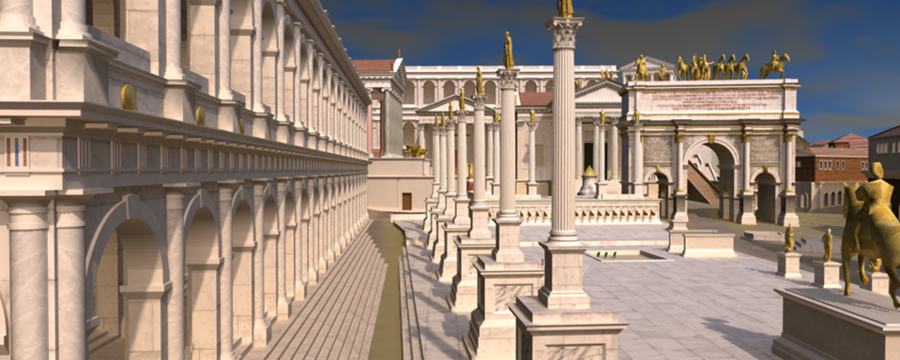Performative Religion in Ancient Rome
Jupiter is called the Best (Optimus) and Greatest (Maximus) for this reason, not because he makes us just, moderate, or wise, but because he makes us safe, unharmed, rich and well supplied.Cicero, The Nature of the Gods 3.87
Augustus had vowed [to build] the Temple of Mars Ultor (Mars the Avenger) at the battle of Philiippi [42BC] which he had undertaken to avenge the murder of his father [Julius Caesar].Suetonius, Life of Augustus 29
Figure 1: A digital recreation of the Temple of Saturn. © Dr Matthew Nicholls, University of Reading
The emperors added new festivals to the calendar. The Augustalia was introduced in 19 BC and held annually on 12th of October, with festive celebrations and games to honour the emperor. Given that religious festivals prior to Caesar and Augustus were held in honour of the gods, the introduction of an annual festival in honour of the emperor implied that Augustus was to be viewed as a divine figure; if we consider also the practice of deification and building of temples to favoured emperors after their death, we can understand how performative religion was used to honour not only the Graeco-Roman gods, but also the city’s human ruling elite.
Rome: A Virtual Tour of the Ancient City


Reach your personal and professional goals
Unlock access to hundreds of expert online courses and degrees from top universities and educators to gain accredited qualifications and professional CV-building certificates.
Join over 18 million learners to launch, switch or build upon your career, all at your own pace, across a wide range of topic areas.
Register to receive updates
-
Create an account to receive our newsletter, course recommendations and promotions.
Register for free







